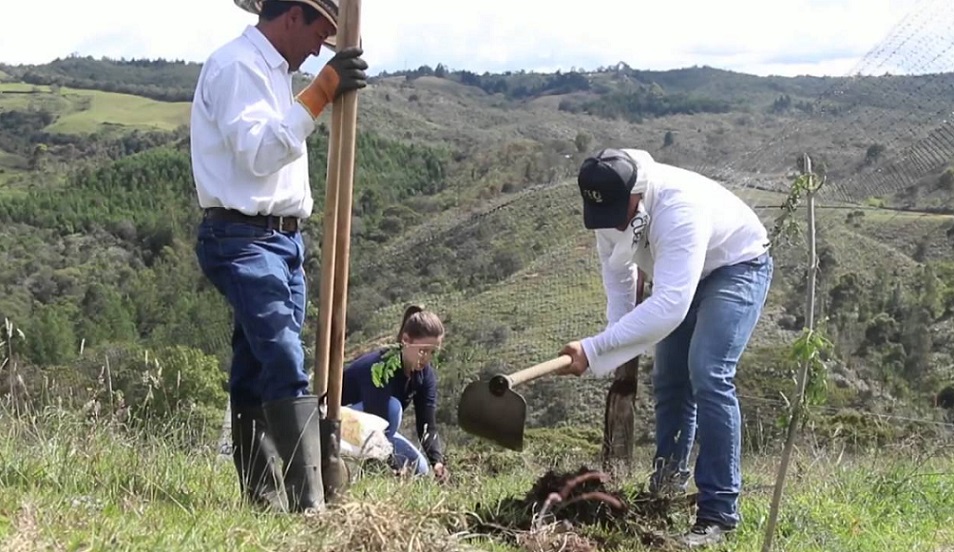Photo courtesy of Girardota City Council, Colombia.
Girardota City Council receives the 2019 CIPDH-UNESCO Construir Igualdad Award for its inclusive local policies
The Peace and Social Inclusion Laboratory in Girardota, Colombia, has received the 2019 Construir Igualdad Award from the UNESCO International Center for the Promotion of Human Rights (CIPDH-UNESCO) for promotion of inclusive local public policies in cities with less than 100,000 inhabitants. This award is given to Girardota as an “equality and non-discrimination friendly city through the pursuit of its local public policies”, and is promoted internationally.
The application was submitted by the Municipal Association of Pla de Mallorca, Spain, after working with Girardota on a collaborative engagement arranged by SOCIEUX+ in the summer of 2019. The Municipal Association worked with Girardota to draft its Municipal Plan for the Promotion of Decent Work, which brought together a series of inclusive social measures. The Peace and Social Inclusion Laboratory stood out as an example of best practices in the field, and was included in the active employment policy.
The award ceremony is to take place in Montevideo, Uruguay, on 3 December, 2019, as part of the celebrations to mark the 70th anniversary of the opening of the UNESCO Regional Bureau for Science in Latin America and the Caribbean. The mayor of Girardota, Vladimir Jaramillo, will address the attendees, and congratulations will be also conveyed via video message from the president of the Pla de Mallorca Municipal Association, Joana María Pascual Sansó, and Catherine Barme, Coordinator for Employment and Labour at SOCIEUX+.
About the Construir Igualdad Award
The Construir Igualdad Award calls attention to policies that increase equality and establish benchmarks, while at the same time promoting the exchange of experiences in the region. It also highlights the strategic role of local governments within the framework of the 2030 Agenda for Sustainable Development and in line with the Sustainable Development Goals (SDGs).
This award, which was first given in 2018, is part of CIPDH-UNESCO’s Ciudades Inclusivas (Inclusive Cities) workstream, which also includes the SDG Cities: International Human Mobility Guide, and the Cities’ Technical Assistance programme.
Winners in other categories this year include:
- The city of León, Mexico, was given the award for its inclusion of people with disabilities in an urban area with over one million inhabitants.
- The Envión Programme in the city of Avellaneda, Argentina, won the award among cities with 100,000 to one million inhabitants.
About the Peace and Social Inclusion Laboratory
The Peace and Social Inclusion Laboratory seeks to contribute to the settlement and social and economic development of the population displaced by the armed conflict in the city, and to do so in conditions of equality. It also works on closing social gaps, integrating the territory, providing physical, social, and food security, organising and integrating the city’s communities, acknowledging and attending to the victims of armed conflict, and recovering peasant traditions in the territory.
On account of its geographical location, the city is both a recipient and originator of victims of the country’s recent armed conflict. It pursues seven strategic lines of work: education and culture; rural related infrastructure and institutions; peasant economy, food security, and rural development; memory and reconciliation; conservation and environmental protection for peace; peaceful coexistence; citizen participation and sustainability. The programme includes direct employment creation measures such as hiring forest rangers, and food security measures through growing crops, promotion of rural integration, and land availability. Public policies are implemented by the waterfall method (multiplication at scale) which contributes to establishing an Effective Route for the Enjoyment of Rights and takes a gender-focused approach.
About SOCIEUX+
EU Expertise on Social Protection, Labour and Employment (SOCIEUX+) is an instrument of technical cooperation established and co-funded by the European Union. Based on the peer exchange model, SOCIEUX+ shares European knowledge and experiences through short-term missions, usually carried out by experts from different public administrations.
SOCIEUX+ offers assistance to more than 155 countries, responding to their needs in the areas of social protection and employment policy, through activities organised on demand. Since its inception in 2014, SOCIEUX+ has implemented more than 256 activities in 42 countries, conducting more than 6,719 days of activities.
The initiative is implemented by an association led by Expertise France (EF), with the International and Ibero-American Foundation for Administration and Public Policies (FIIAPP), Belgian International Cooperation on Social Protection (BELINCOSOC), and Belgian Technical Cooperation (Enabel).
More information about SOCIEUX+ is available on our website.








